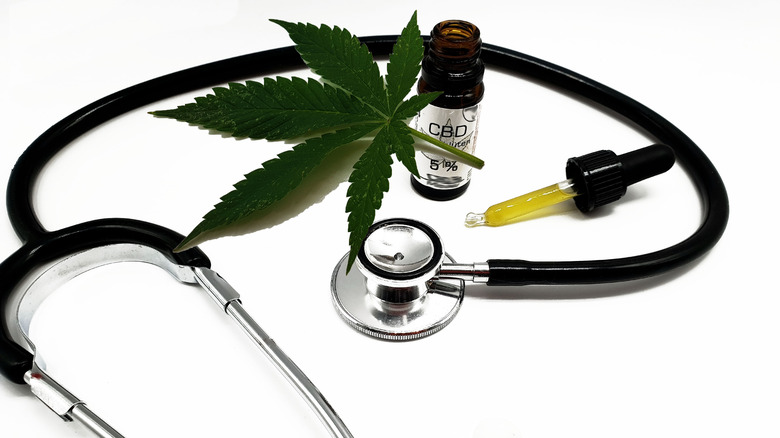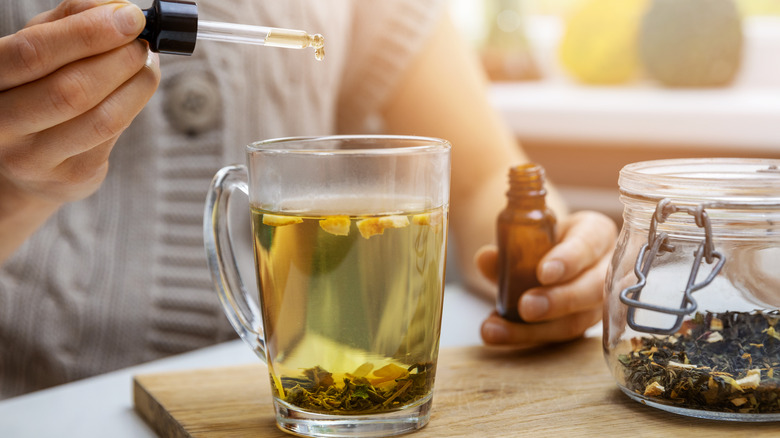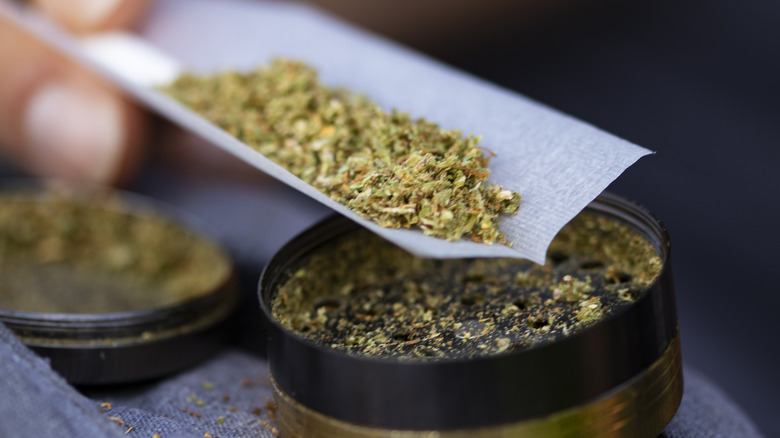CBD Vs. THC: What's The Difference?
Ever since Colorado became the first state to officially legalize the recreational use of marijuana products, cannabis has had a steep rise in popularity among users (via Rolling Stone). Since then, many states have gone on to legalize cannabis use for both recreational and medical purposes and made it as easy to get products with THC as it is to get a bottle of liquor. In the years following the early days of legalization, new cannabis products popped up on the market to cater to a wide range of needs. In 2013, CNN released a documentary called "Weed" that brought THC's close cousin, CBD, to public attention (via The Guardian).
The documentary profiled a 5-year-old girl named Charlotte who suffered from hundreds of seizures per week due to a life-threatening form of epilepsy. After months of painstakingly researching ways to alleviate their daughter's suffering, Charlotte's parents made the controversial decision to treat her condition with a form of cannabis high in CBD, administering it in the form of oil, a common method of taking CBD. While Charlotte was considered a bit young to experiment with medical cannabis treatment, the results were shocking. The seizures subsided almost completely, and Charlotte began living a healthier life.
Giving a cannabis product to a child may sound strange, but CBD is quite different from THC. Charlotte wasn't getting stoned; she was simply getting better. What is it that sets CBD apart from other compounds found in marijuana?
CBD and THC are more similar than different
Both CBD and THC are found in hemp and marijuana plants. The two compounds can have very similar effects on the body, and can both be beneficial in aiding with sleep, memory, mood, and pain. They have an almost identical chemical makeup, with the only variation being in the way the atoms are arranged (via WebMD). Because of the difference in atom arrangement, there is one very clear difference between THC and CBD: THC is the part of hemp and marijuana that has a psychoactive effect, which is what gives users the often-desired feeling of "getting high."
Many have claimed for years that THC products can help with numerous medical and psychological issues, but getting stoned isn't for everybody. CBD products offer benefits without affecting your state of mind, which is what made it such an ideal product for Charlotte, the epileptic child featured in CNN's "Weed" (via The Guardian). Since its rise in popularity, the FDA has approved a single CBD medication, Epidiolex, for children who share Charlotte's condition. The Guardian report cites The New England Journal of Medicine's claims that the drug can reduce seizures by up to 40%. The treatment's success was unheard of. For those who don't suffer from such an extreme medical condition, there are other factors to consider when choosing between THC and CBD.
Benefits can vary
In the 1990s, the human body's endocannabinoid system was discovered by scientists (via Healthline). Your endocannabinoid system plays a major role in regulating overall health, including sleep, fertility, appetite, and mood, and both CBD and THC interact with this system. THC gives you the psychoactive effect of getting high when it binds to receptors in your endocannabinoid system. While this can be helpful for appetite and sleep, it is also known to occasionally elevate levels of paranoia and anxiety. If you tend to feel anxious when using THC but still want some of the benefits, you may consider switching your product of choice to CBD.
While scientists haven't quite figured out exactly how CBD interacts with the endocannabinoid system, it is believed that it prevents endocannabinoids from being broken down. It is thought that this is why CBD is able to have such a strong physical effect on the body.
Whichever product you choose for health or recreation, it's always best to do your research. A discussion with medical professionals would also be helpful.


